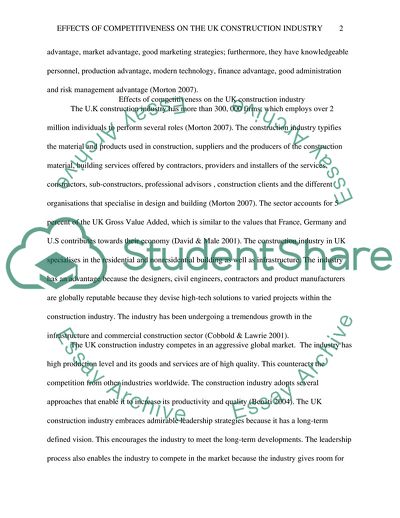Cite this document
(Effects of Competitiveness on the UK Construction Industry Coursework Example | Topics and Well Written Essays - 1500 words, n.d.)
Effects of Competitiveness on the UK Construction Industry Coursework Example | Topics and Well Written Essays - 1500 words. https://studentshare.org/engineering-and-construction/1780253-effects-of-competitiveness-on-the-uk-construction-industry
Effects of Competitiveness on the UK Construction Industry Coursework Example | Topics and Well Written Essays - 1500 words. https://studentshare.org/engineering-and-construction/1780253-effects-of-competitiveness-on-the-uk-construction-industry
(Effects of Competitiveness on the UK Construction Industry Coursework Example | Topics and Well Written Essays - 1500 Words)
Effects of Competitiveness on the UK Construction Industry Coursework Example | Topics and Well Written Essays - 1500 Words. https://studentshare.org/engineering-and-construction/1780253-effects-of-competitiveness-on-the-uk-construction-industry.
Effects of Competitiveness on the UK Construction Industry Coursework Example | Topics and Well Written Essays - 1500 Words. https://studentshare.org/engineering-and-construction/1780253-effects-of-competitiveness-on-the-uk-construction-industry.
“Effects of Competitiveness on the UK Construction Industry Coursework Example | Topics and Well Written Essays - 1500 Words”. https://studentshare.org/engineering-and-construction/1780253-effects-of-competitiveness-on-the-uk-construction-industry.


